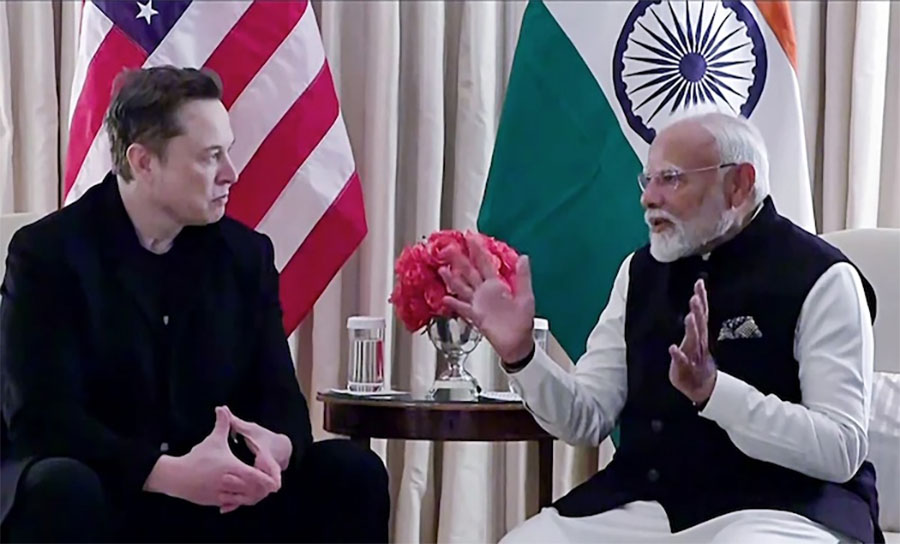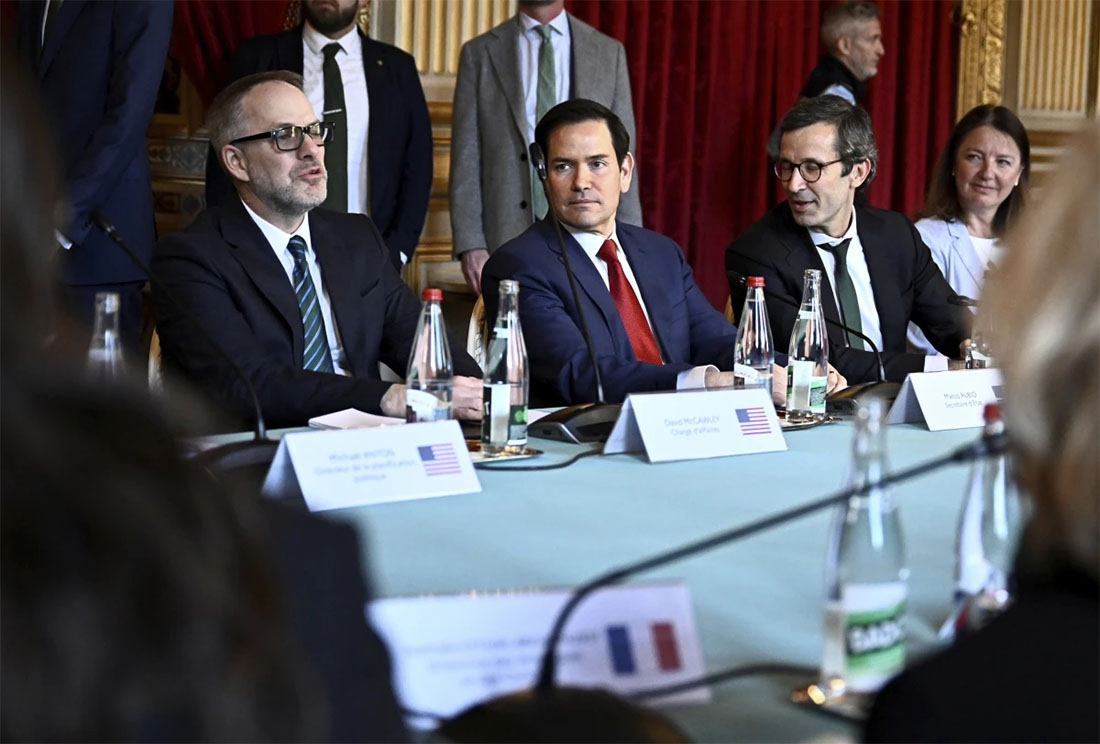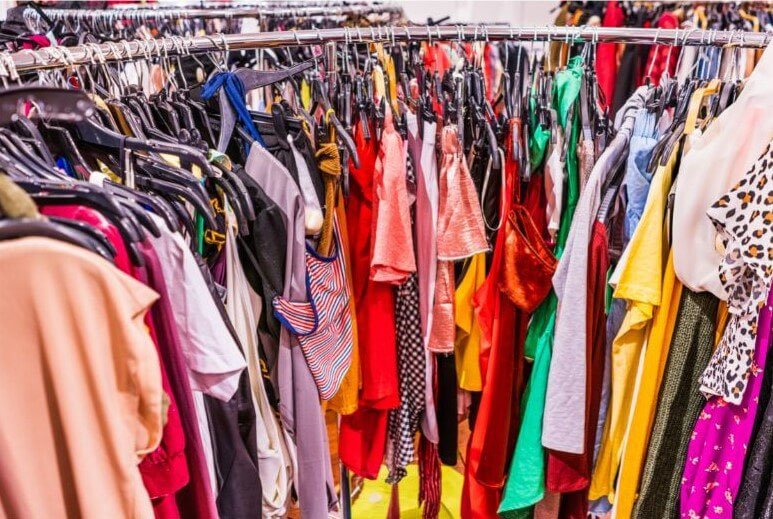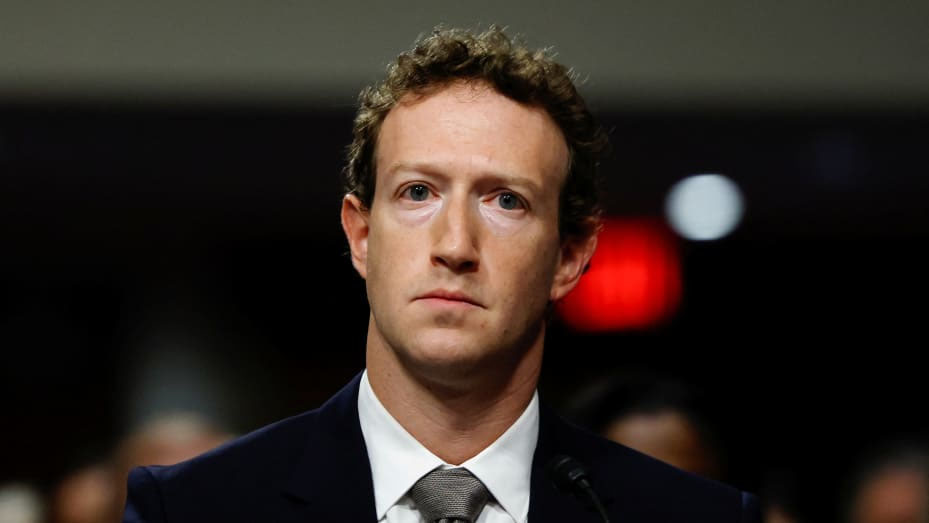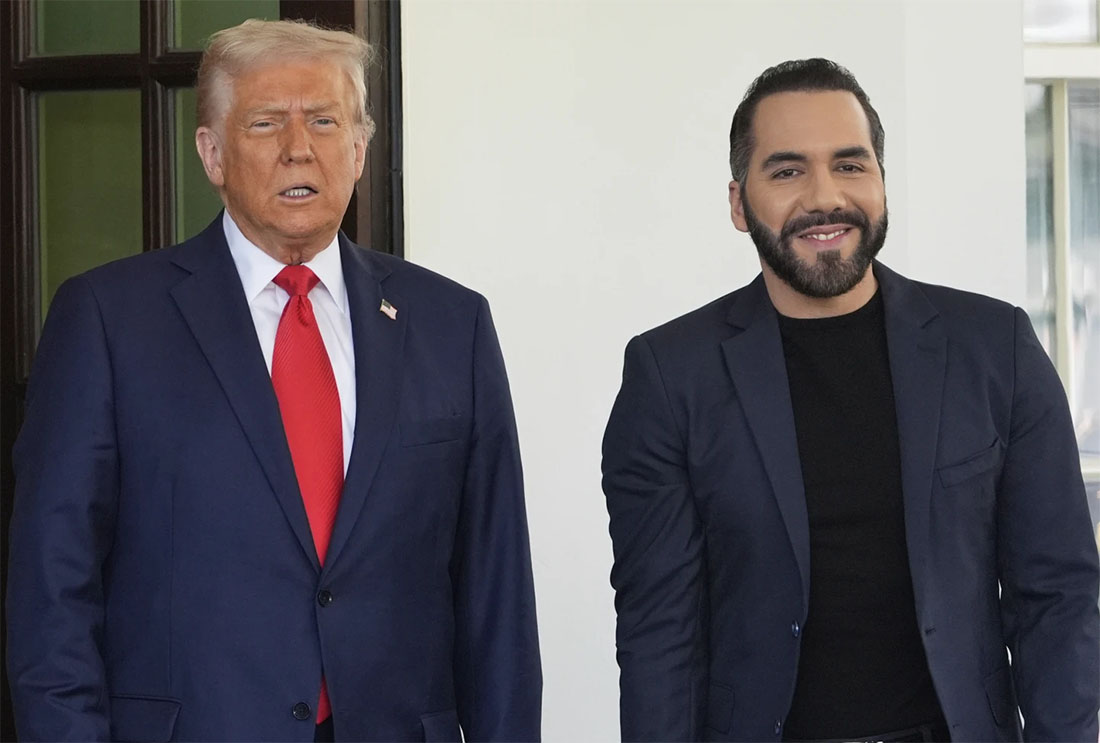
Photo Credit: Getty Images
President Donald Trump on Monday reiterated that he’d like to send U.S. citizens who commit violent crimes to prison in El Salvador, telling that country’s president, Nayib Bukele, that he’d “have to build five more places” to hold the potential new arrivals.
Trump’s administration has already deported immigrants to El Salvador’s notorious mega-prison CECOT, known for its harsh conditions. The president has also said his administration is trying to find “legal” ways to ship U.S. citizens there, too.
Trump on Monday insisted these would just be “violent people,” implying they would be those already convicted of crimes in the United States, though he’s also floated it as a punishment for those who attack Tesla dealerships to protest his administration and its patron, billionaire Elon Musk. But it would likely be a violation of the U.S. Constitution for his administration to send any native-born citizen forcibly into an overseas prison. Indeed, it would likely even violate a provision of a law Trump himself signed during his first term.
Here’s a look at the notion of sending U.S. citizens to prison in a foreign country, why it’s likely not legal and some possible legal loopholes.
If it’s legal to do to immigrants, why not citizens?
Immigrants can be deported from the United States, while citizens cannot. Deportation is covered by immigration law, which does not apply to U.S. citizens. Part of being a citizen means you cannot be forcibly sent to another country.
Immigrants can be removed, and that’s what’s been happening in El Salvador. The country is taking both its own citizens that the United States is sending as well as those from Venezuela and potentially other countries that will not take their own citizens back from the U.S. The Venezuelans sent there last month had no opportunity to respond to evidence against them or appear before a judge.
That’s the deal the Trump administration signed with Bukele. The U.S. has sent people to El Salvador, Costa Rica, Panama and elsewhere even when they are not citizens of those countries. But, under international agreements, people cannot be sent to countries where they are likely to be persecuted or tortured.




